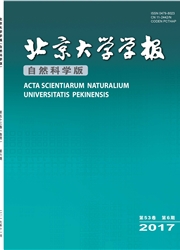

 中文摘要:
中文摘要:
基于黔、桂、滇3省(区)72个气象站点45年(1960-2004年)逐月平均气温和降水量数据,借助小波分析、人工神经网络及GIS空间分析等方法研究了我国西南喀斯特生态脆弱区近45年来在全球气候变暖的背景下,气候变化的特征和总体趋势.研究结果显示:该区气候变化具有明显的周期性特征,其中气温变化的主周期约为7年,降水量变化的主周期约为25年.该区气候变化的季节性特征和区域差异也比较明显,通过计算过去45年中四季气温和降水量的变化率并对其进行GIS空间插值分析,得到了四季气温和降水量变化的区域分异状况;通过SOFM网络分别选取分类指标对研究区近45年来气温和降水量变化的状况进行聚类分析并对聚类结果进行GIS空间插值分析,划分了研究区气温和降水量变化的类型区域.RBFN模型预测的结果得出,该区2005-2010年气温和降水量的变化均处于相对低值期.
 英文摘要:
英文摘要:
Climate change has seasonal and regional characteristics. Many researchers have paid more attention to regional climate change in China. This paper analyzes characteristics and tendencies of climate change in the southwestern karst region of China in the recent 45 years (1960-2004) using wavelet analysis, artificial neural network and GIS spatial interpolation analysis, and so on. The results show that this regional climate change demonstrates significant periodic variations. The principal period of temperature variations is about 7 years, and the principal period of rainfall variations is about 25 years. It also has obvious seasonal characteristics and regional variations. By calculating seasonal temperature and rainfall variation rates with spatial interpolation, regional distributions of seasonal temperature and rainfall variations are obtained. Temperature and rainfall variations during the past 45 years are classified by means of SOFM network. Spatial distributions of the temperature and rainfall variations are obtained using spatial interpolation analysis. Finally, climate tendency is predicted with the RBFN model. Results show that variations of temperature and rainfall are both in a relatively low value period during 2005-2010.
 同期刊论文项目
同期刊论文项目
 同项目期刊论文
同项目期刊论文
 期刊信息
期刊信息
